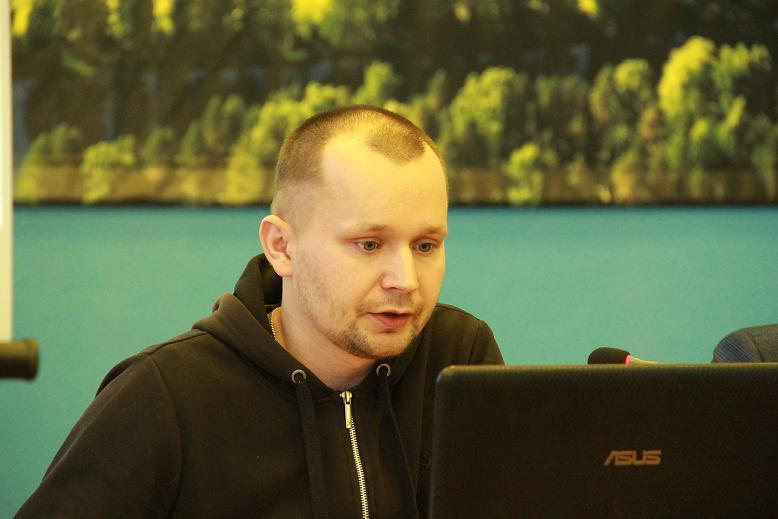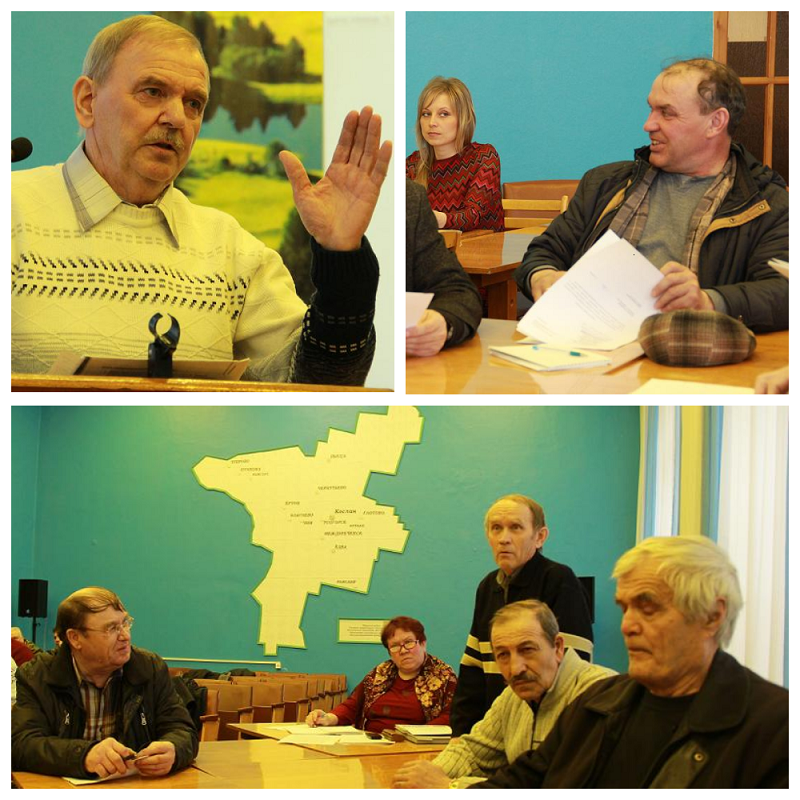Activists of the District Propose Temporary Access Restriction to Udora Wildlife Reserve to Conserve Mezen Salmon
The Public Environmental Council at Udora District Administration is planning to address Head of the Komi Republic Sergey Gaplikov with a proposal to impose temporary restriction of access to the complex wildlife reserve.
The idea to restrict the access to the reserve has been discussed in the district for years – in particular, it has been mentioned at annual conferences of the Komi Voytyr Interregional Public Movement many times.
The scientific justification for this action was elaborated by the Silver Taiga Foundation jointly with ichthyologists from Institute of Biology of the Komi Scientific Center, Ural branch of the Russian Academy of Sciences, based on the activists’ request.
The Public Environmental Council held its meeting on 12 April in the assembly hall of the Udora District Administration. Logically, it followed the discussion initiated on 17 November last year during the round table meeting Mezen Upper Reaches: Has Ceased Amateur Fishery Improved Situation. At that time, the stakeholders of the Model River Mezen project discussed the issue related to development of measures to maintain and restore the population of the Mezen salmon which hit its low over the last years. The round table meeting resolved to establish a working group to elaborate the justification to restrict the access to the Udora Wildlife Reserve. Silver Taiga’s Nikolay Shilov, Model River Mezen project coordinator, informed the members of the Public Environmental Council meeting with the findings of the Working Group.
Scientists of the Institute of Biology of the Komi Scientific Center, Ural branch of the Russian Academy of Sciences, see temporary restriction of access to the reserve for the period of 4 years as the most efficient measure to preserve and restore the salmon population. This period is the duration of life cycle of salmon youngsters. According to observations of ichthyologists, only a minor part of the first generation of the Atlantic Salmon manages to lay eggs at least once in the upper reaches of the Mezen. Most fish are caught by poachers before they lay eggs. In addition, a 4-year restriction period will also contribute to recruitment of European grayling, the population of which is severely depleted, according to scientists.He noted that most salmon spawning grounds are located in the Udora Wildlife Reserve. Although salmon catching is officially prohibited in the reserve, poaching still goes on. The Department of State Control, Supervision and Protection of Aquatic Bioresources detected 17 fishing and hunting violations in the upper reaches of the Mezen in 2014, 8 – in 2015, and 25 – in 10 months of the previous year. The data of the Arkhangelsk branch of Sevrybvod prove gradual reduction of the Mezen salmon population. Silver Taiga’s experts, who had been continuously monitoring filling up of the Atlantic Salmon spawning grounds (redd accounting) at the Mezen tributaries since 2011, were also disappointed about the findings. The total length of the inspected areas amounts to over 200 km. The arithmetic average of redds at the stated distance for those years is 83, which is 30-40 times below the data recorded before 1992, and 100 times less than at protected rivers in Karelia. The Foundation experts constantly find poaching tools, they also note cases of young fish mortality. The expert conclusions are also supported by observations of the locals who say that there is almost no salmon left in the river.
If the decision on the restricted visits to the reserve is approved, supervisory functions will be allocated to inspectors of the Komi Republic Center of SPNA reporting to the Ministry of Industry of the Komi Republic. The Center performs almost all of its monitoring and control activities jointly with inspectors of other supervisory authorities. The republic has 236 wildlife reserves of regional importance, however, due to poor condition of the population of the Mezen salmon and European grayling, the Center is committed to focus more on the Udora Wildlife Reserve.
Most of the participants of the Public Environmental Council meeting agreed that the toughest measures restricting the access to the reserve need to be introduced. These are not local people who practice illegal fishing, but visitors who enter the reserve by fast off-highway vehicles.
“The reserve is located quite far from residential areas, and the locals cannot afford such expensive vehicles, boats, motors, snowmobiles or fishing equipment. So, visits to the reserve must be restricted for everyone, except for researchers and scientists”, deputy Alexander Popov believes.
The participants of the meeting supported fishing restrictions not only in the upper reaches, but also in the middle and lower reaches of the Mezen in Arkhangelsk region. Udora activists think that restrictions in the Komi Republic are just the first step on the way to preserve the Atlantic Salmon in the Mezen and recruit it.
Later on, the initiative of the Udora residents is to be reviewed by the Government of the Komi republic, and then the Komi Republic Center of SPNA will develop a draft regulation on restricted access to the Udora wildlife reserve that subsequently will be open for public discussion (public hearing).



